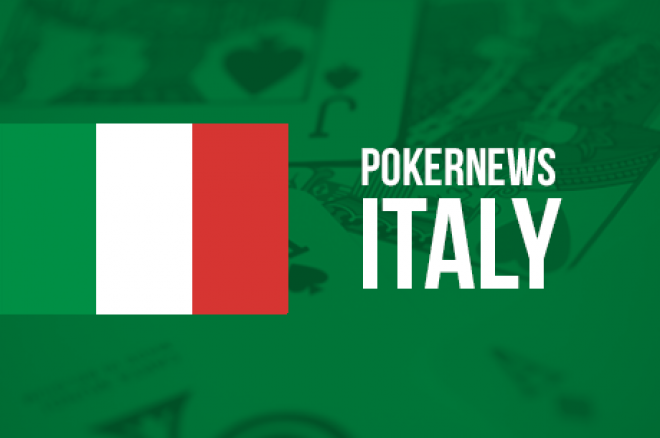Italy��s Legislator To Open To International Liquidity as Online Poker Industry Sinks

Italy's upcoming gambling legislation may become the turning point for the launch of international shared liquidity in Europe, as the country actively looks for measures to bring the industry back to growth after years of decline.
According to DLA Piper's gaming lawyer Giulio Coraggio, Italy may be about to introduce an all-new set of norms that will lead to the creation of an international regulated online poker market with the hope that this will bring people back to the online poker tables.
"Italian gaming laws are going to be considerably amended as part of the so-called Delega Fiscale law which, among others, is likely to change the regime of sports betting and poker tournament to 20-percent Gross Gaming Revenue (GGR)," Coraggio said last week.
Although the text of the law is not public yet, Coraggio claims that the upcoming changes may finally allow Italy's gambling regulator AAMS to get a more active role in the development of gambling-related policies and to work closely with its European counterparts.
"In the last draft of such law, a new provision was introduced to allow the management of games by the Italian gambling regulator, AAMS, together with the authorities of other countries," Coraggio states.
For the time being, it is not clear how the Italian authorities plan to promote the launch of an international online gambling market and deal with the technical and legislative challenges this implies. However, all the actors in the industry seem to agree that the injection of new liquidity may be the best step to take to make the sector more attractive to players and operators.
"The online poker market is facing considerable difficulties worldwide and in countries like Italy, Spain, and France the impact of such crisis might be even higher given that they are closed loop markets," Coraggio concludes. "But if poker international sharing liquidity will be allowed, the scenario might considerably change."
Young Italians Are No Longer Interested in Poker
As the debate over the possibility of Italy to be Europe's shared liquidity strongest promoter heats up, the latest figures from AAMS send worrying signals about the health of the country's poker industry.
According to official data from 2014, as reported by Italy's Jamma.it, the country's gambling industry closed 2014 with numbers similar to the ones recorded in 2013 thanks to the positive performance of verticals like online casino gambling and sports betting, and despite the decline of online poker.
Compared to 2013, Italy's cash games GGR went down by 21 percent while tournament poker's decline have been of 18 percent. The total GGR of the online poker industry in the country has been of �178 million, which is only a fraction of what the same industry used to generate prior the establishment of a ring-fenced regulated market.
Numbers at hand, AAMS showed that Italians are less keen to spend money on online poker games than ever before and are getting less enthusiastic about the Texas hold'em poker variant. Italy's gambling authority estimates that the market counted 223,000 players in 2014 (-17 percent compared to 2013) and 247,000 accounts (-18 percent), with the vast majority of them being likely to play in events with buy-ins ranging between �1 and �30.
Official data shows that 10 percent of the tournament played had a buy-in between �0.01 and �2, 44 percent had a buy-in between �2 and �10 (-29 percent compared to 2013), and 22 percent had a buy-in between �10 and �30. Although Texas hold'em is still the most popular game in the country with 84.9 percent of the games being played in this variant, the percentage of non-hold'em games moved from 2.5 in 2013 to 15.1 in 2014, showing a burgeoning interest in Omaha, stud, mixed gamed, and other variants.
The most alarming side of the numbers released by AAMS, however, is probably the one about the demographics of Italy's poker players, as the data show that the game does not seem to appeal to the younger generations. While the largest part of Italy's player pool is either in the 25-34 (28 percent) or the 35-44-year-old range (28 percent), the percentage of players between 18 and 24 years old decreased by three points while the one of the players over 55 years old has increased by two percentage points.
Online Slots, Sports Betting, Mobile On The Rise
The decline of online poker, however, has been compensated by the growth of other verticals as online casino gambling and sports betting, which became the actual drivers of the industry.
In 2014, online casino games generated revenues for �255 million, recording a 6.7-percent increase compared to 2013. Most of the revenues have been generated by the online slots, which account for 57 percent of the total (+9 percent compared to 2013).
Similarly, the sports-betting vertical closed the past year with a positive result, as the sector grew by 11 percent despite the decline of the bets on football, Italy's most popular sport (-11 percent). The fewer revenues generated by football betting have been compensated by a significant growth in the revenues generated by bets on basket (+1 percent) and tennis, which moved from 11 to 20 percent in only two years.
A great contribution to the growth of the industry came also from mobile gambling and betting, as AAMS considers that the wagers placed through mobile devices in 2014 increased by 104 percent compared to the year before. Mobile gambling is estimated to account for 13.7 percent of the GGR generated in 2014, which is seven percent more than in 2013.
Want to stay atop all the latest in the poker world? If so, make sure to get PokerNews updates on your social media outlets. Follow us on Twitter and find us on both Facebook and Google+!








